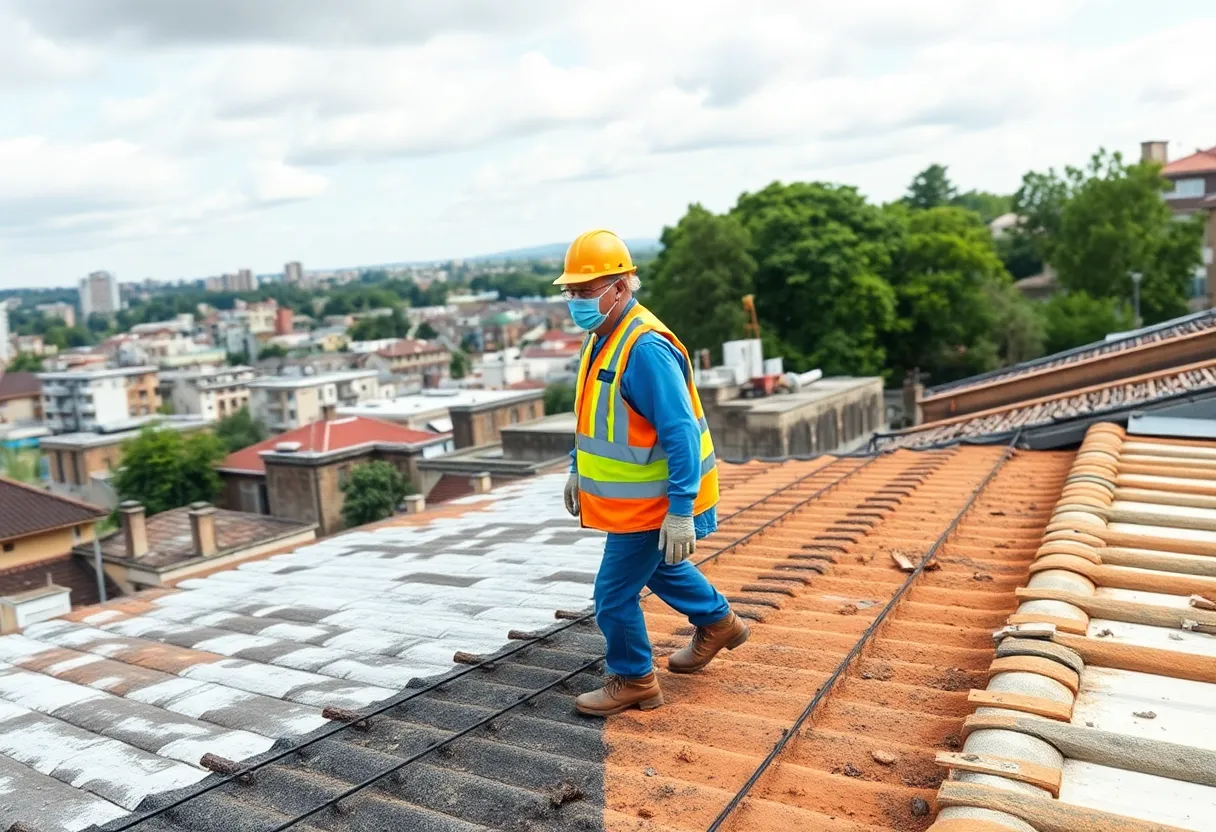News Summary
The Kenyan government initiates a nationwide removal of asbestos in public and private facilities to address health risks associated with this hazardous material.
Kenya Launches Nationwide Asbestos Removal Initiative to Combat Health Risks
In a groundbreaking decision, the Kenyan government has approved a nationwide asbestos removal initiative that aims to rid public and private facilities of this dangerous material. The initiative reflects a growing recognition of the serious health risks posed by asbestos exposure, particularly in a country where its use was rampant in the construction industry during the 1960s and 1970s.
The Battle Against Asbestos
Asbestos, now classified as a human carcinogen, has been linked to a range of severe health issues. Among these, lung cancer and mesothelioma—a rare cancer that affects the lining of the lungs, abdomen, and heart—stand out as particularly devastating consequences of exposure. Despite the dangers associated with this material, many public buildings, hospitals, schools, and even water supply systems still contain asbestos components, putting countless Kenyans at risk.
The newly approved initiative underlines the government’s commitment to fostering healthier and safer environments for all citizens. In a directive issued by Cabinet Secretary Aden Duale of the Ministry of Environment, Climate Change, and Forestry, there is now a mandatory requirement to remove all asbestos roofs throughout the nation within three months. This urgent response highlights the government’s prioritization of public health over an outdated construction material.
NEMA Takes Charge
The National Environment Management Authority (NEMA) has been tasked with identifying facilities that have asbestos roofing. This mapping exercise is crucial in ensuring prompt removal and compliance with the new mandate. Hospitals and private facilities using asbestos roofs are specifically instructed to take immediate action in accordance with the directive. This comes at a time when many households are still inadvertently exposed to health risks due to prolonged use of asbestos.
As part of this initiative, NEMA will also update its list of wetlands across the country to ensure their protection, while simultaneously addressing issues related to environmental hazards—like the discharge of raw sewage into Nairobi’s rivers. With strict enforcement of environmental laws mandated, NEMA will play a pivotal role in safeguarding public health.
The Aftermath of Past Decisions
While asbestos use in construction was banned in Kenya in 2006, the presence of asbestos in various facilities highlights the need for urgent remediation efforts. Many citizens remain largely unaware of the potential health risks associated with this now-banned material, leading to a dangerous cycle of exposure, particularly in older residential estates built in the 1950s and 60s.
The Nairobi County Assembly echoes these public health concerns, emphasizing the growing incidence of cancer cases related to asbestos exposure. Recent reports indicate increasing pressure on the Nairobi County executive to replace hazardous asbestos roofing in community estates. The ongoing discussions revolve around ensuring a clear timetable for the removal of these roofs and enforcing the national ban on asbestos in construction.
Community Concerns
Of particular concern are the health risks faced by residents in homes and facilities that still utilize asbestos roofing. Rainwater collected from these roofs poses additional hazards, leading to potential contamination and exacerbating the risk of long-term health complications.
In a report regarding Nairobi’s urban renovation efforts, it has been noted that only ten out of 43 markets in the county contain asbestos roofs, all of which are in the process of being replaced. This illustrates a significant stride toward cleaner and safer community spaces, while also drawing public attention to the need for stringent monitoring and enforcement of asbestos removal policies.
As Kenya embarks on this ambitious nationwide asbestos removal initiative, the focus remains firmly on safeguarding the health of its citizens and eliminating a lingering threat that has already caused far too much suffering.
A Call to Action
The launch of this initiative serves as a call to action for all Kenyans to address the realities of asbestos exposure. Building owners and facility managers across the nation must comply with the removal order, underscoring the critical need for environmental stewardship in creating a smoke-free, hazard-free environment for generations to come.
In these challenging times, the government’s decisive steps signal hope and promise, working towards a future where public health and safety are prioritized over convenience and neglect. The fight against asbestos begins now, and it demands the collective effort of the entire nation to succeed.
Deeper Dive: News & Info About This Topic
HERE Resources
Asbestos Concerns Rise as Renaissance Center Plans Hit Snag
Veterans Face Health Crisis Linked to Asbestos Exposure
The Fight Against Mesothelioma: Progress and Challenges Ahead
Richmond Pensioner’s Fight Against Asbestos Ends in Court Victory
Montana’s Mesothelioma Crisis: New Legislative Threats
Mould Infestation in Public Housing Units Sparks Health Concerns
UK Parliament: A Crumbling Disaster Lurking With Asbestos Threats
Beware of Asbestos: A Call to Action Ahead of Global Asbestos Awareness Week
Contractor Sentenced for Asbestos Hazard Endangering Elderly Woman
Kenyan Government Takes Bold Steps to Eradicate Asbestos Nationwide
Additional Resources
- Zawya: Kenya Enhancing Public Health and Safety Nationwide
- Wikipedia: Asbestos
- University World News
- Google Search: Asbestos Health Risks
- Nairobi Wire: CS Duale Orders Nationwide Removal of Asbestos Roofs
- Google Scholar: Asbestos Removal Initiatives
- Business Daily Africa: Nairobi MCAs Want Hazardous Asbestos Roofing Replaced
- Encyclopedia Britannica: Asbestos



















